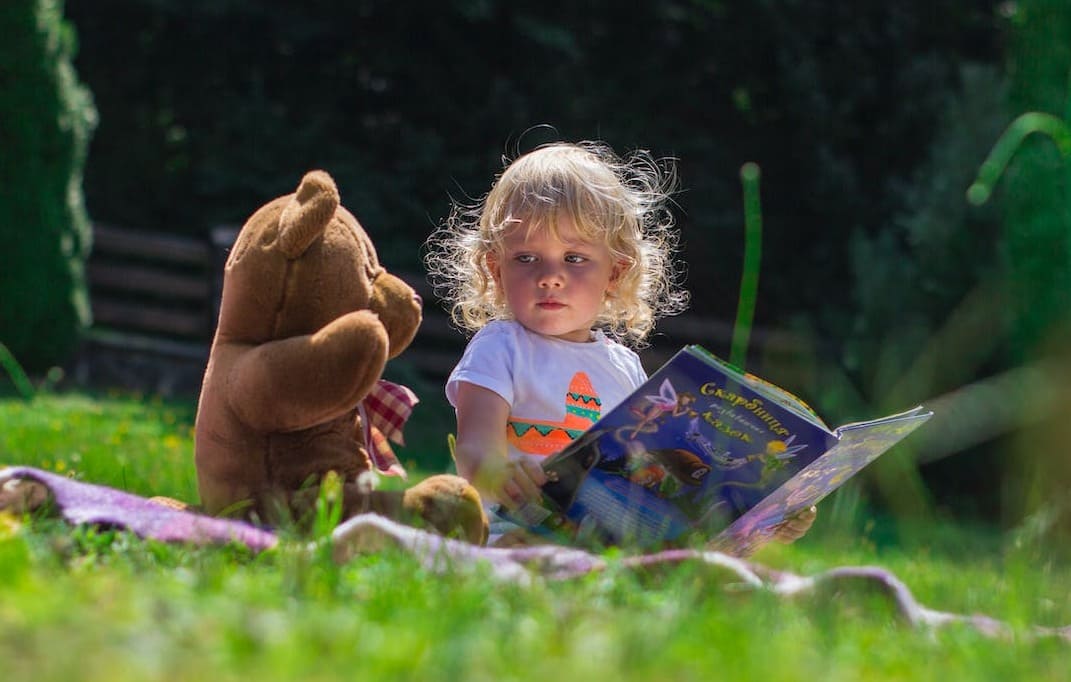Screens are everywhere in our modern world. From smartphones to tablets, TVs to laptops, it’s hard to avoid them. Babies need meaningful human interaction during their early years for healthy cognitive, social, and emotional growth. Many parents wonder: Is screen time okay for babies? The short answer is: Not really. Babies need human interaction more than anything else. Here’s why this matters and how you can help your little one grow without relying on screens.

Why Screen Time Is Not Great for Babies
Excessive exposure to screens during infancy has been linked to negative effects on infants. Research shows that infants who spend significant time in front of screens often experience delayed language development, restricted social skills, and shorter attention spans. Screens offer passive engagement that doesn’t stimulate key elements of early brain development. The problems with too much screen time mean parents and caregivers should prioritize human interaction as a key part of early childhood development.
Read More about Unplugged and Active: A Parent’s Guide to Limiting Screen Time of Kids and learn about WHO guidelines.
The Power of Human Interaction
Human interaction plays a key role in shaping a baby’s cognitive, social, and emotional well-being. Face-to-face interaction builds trust and attachment, which helps emotional security and healthy social development. Through interacting with babies, they learn facial expressions, body language, and tone of voice, which sets the stage for communication and empathy. Human interaction also allows for back-and-forth responses, which are vital for learning language, cognitive development, and problem-solving skills. It’s through these connections that a baby’s brain develops well, building neural pathways that will help them learn throughout their lives.

What Babies Really Need
Instead of screen time, engage babies with sensory activities that stimulate their development through touch, sight, sound, and movement.
- Face-to-face interaction with caring adults
- Physical touch and cuddles
- Real world object exploration
- Outdoor experiences
- Interactive play
- Reading together
- Music and movement activities
Read more about The Science of Play: Fundamental to Your Child’s Development
Tips to Reduce Screen Time for Babies
Parents and caregivers should take steps to prioritize human interaction over screen time in a baby’s daily routine. Engaging in activities that stimulate the senses such as reading, singing, playing, and storytelling can strengthen the connection between caregiver and infant. Creating a warm and nurturing environment that encourages face-to-face interaction can strengthen social and emotional bonds while promoting language development. It’s also important to limit screen exposure to age-appropriate content when screens are unavoidable and ensure that babies have enough interactive playtime with caregivers and peers.
If you’re worried about screen time, here are some easy tips to help:
Set a Good Example: Babies copy what they see. If you spend less time on your phone or TV, they will be less interested in screens too.
Create Screen-Free Zones: Keep screens out of certain areas, like the dining table or the baby’s room. This helps make family time more meaningful.
Engage in Play: Spend time playing with your baby. Use toys, books, or even everyday objects to keep them entertained.
Talk and Sing: Narrate what you are doing, sing songs, or read books out loud. Your baby will love hearing your voice.
Go Outside: Fresh air and nature are great for babies. Take them for a walk, let them feel the grass, or just enjoy the sunshine together.

For working parents, balancing work and family life helps ensure babies get the human interaction they need while managing career responsibilities.
Benefits of Minimal Screen Exposure
While avoiding screens completely may be challenging in today’s digital age, it is possible to find a balance that puts human interaction first without cutting out screen time entirely. When used carefully, screens can be educational tools and facilitate interactive experiences that add to human engagement rather than replacing it. Limited screen time, combined with attentive caregiver interaction, can provide opportunities for shared experiences, encourage language learning, and promote thinking skills. However, it’s important to be careful when watching screen content and how long babies watch to avoid problems.
While it’s best to avoid screens for babies under 18 months, a little screen time might be okay for older babies. For example, video calls with family can be a fun way to connect. Just keep it short and make sure you are there to guide the interaction. Regular face-to-face interaction is important for secure parent-child bonding and healthy brain development.
Setting Healthy Screen Time Habits
If you do allow screen time:
- Watch together with your baby
- Talk about what you are seeing
- Choose educational content
- Set time limits
- Keep screens out of the bedroom

Conclusion
Babies grow fast, and every moment counts. While screens might seem like an easy way to keep them busy, nothing beats human interaction. Research supports the idea that babies need humans, not screens, for healthy development. Human interaction gives babies important chances to form neural connections, learn language, grow socially and emotionally, and develop cognitively. As adults, we should prioritize meaningful human engagement, build strong caregiver-infant bonds, and create environments that help learning and healthy growth. By finding a balance and being careful about screen time, we can help make sure our babies get the nurturing and interactive experiences they need to do well in a digital world. By focusing on real-life interactions, you are giving your baby the best start in life. And that’s something no screen can ever replace.
Remember: Every smile, cuddle, and conversation helps your baby grow. Make human connection your priority, and use screens sparingly.